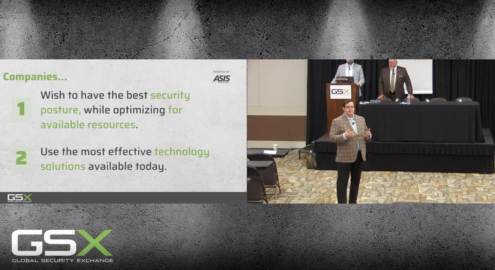Conferences
IACLEA 2023: College’s Social Media Problem, Mental Health, and Hazing

Last month the International Association of Campus Law Enforcement Administrators (IACLEA) held their annual conference and exposition in Orlando, Florida.
Although several topics were discussed during the event, some trends were top of mind. Specifically, campus safety professionals are saying that schools have a social media problem on campus.
The ‘online radicalization of students’
It’s time for schools to admit to the social media problem on campus. Savvy online groups are using social platforms to radicalize college students, participating in divisive behavior both online and offline. The result of this has been a growing intolerance of the right to hold opposing views among students.
This doesn’t mean all students are participating in damaging behavior, but a loud minority is pulling the focus of university administrators, engaging in behavior and making demands that the vast majority of students don’t condone. Schools, however, are reacting to the squeakiest wheel, responding to demands without engaging the greater student body.
For example, due to an incident with the local city police, one campus saw an online movement to remove its campus safety officers. At that college, however, campus safety provides several highly-valued services, such as counseling, escorting students late at night, and post-incident services. Once the greater student body learned that removing campus safety would eliminate those services, there was a backlash.
Campus law enforcement agrees that universities need to change their response to these incidents, considering the sources before responding, and getting more parents involved by letting them know what is happening on campus.
Mental health is still a big issue
Mental health was a prevalent topic last year at IACLEA and that was the case this year as well, not only for students but for campus safety officers.
Part of the reason for this is that campus safety and security personnel are being asked to intervene in situations they are not equipped for, or may not be legally able to respond to. In these cases they need support from personnel who can handle mental health situations. They also need support after responding to difficult situations that may have negative repercussions on their own mental health.
Better student wellness programs and effective crisis intervention is needed. Campus safety needs to better understand disaffected students and how the college experience is failing them.
One of the contributing factors is that students are coming to college with issues that are a result of their K-12 experience. For example, many students have already been exposed to online radicalization by the time they reach college. Many students are also still recovering from the years they lost on social development during the COVID-19 pandemic.
Despite college efforts, hazing appears to be eternal
Hazing is still happening on college campuses, just not where you might think.
While fraternities and sororities have been monitored closely and sanctioned for hazing over the years, there are still serious hazing and pranking issues in other parts of the college system. Specifically, colleges are seeing hazing in theater groups, ROTC organizations, band, and other social organizations.
The college system needs to monitor those groups to minimize that behavior.
The Clery Act is changing focus
The Clery Act is looking to pivot, changing its focus from statistics and reporting to response and results. Right now, campus law enforcement is responding to a student population that is going through, arguably, the toughest time in their lives. While crime statistics are important, schools are tying themselves in knots to comply with Clery’s reporting requirements and missing the spirit of Clery.
Rather than worrying about reporting, it’s critical that campus safety departments are able to respond to issues and prove the impact they’re having on student safety and security.
This is something Circadian Risk can help with. We can use our platform to create an assessment based on the requirements of Title IX and Clery. Not only will this help officers with assessments, but it can also be used as a teaching tool to help new officers and directors remediate issues and improve safety on campus.
Need help with Clery Act and Title IX assessments? Contact us for a demo..





